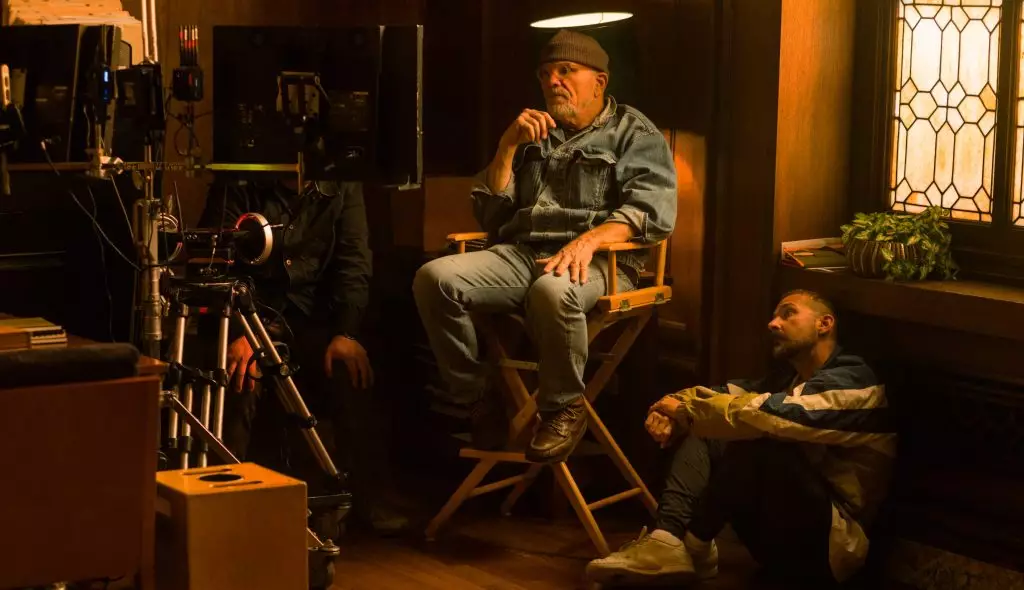In the summer of 2025, the Crew Call podcast launches into a profound exploration of creativity with none other than David Mamet—the Pulitzer Prize-winning playwright and two-time Oscar nominee. After a long hiatus from directing, Mamet makes a triumphant return with his new film, *Henry Johnson*, based on his 2023 play that marked its debut in the vibrant arts landscape of Venice, California. This new project, which is self-distributed and available to rent digitally, encapsulates the complexities of morality through the journey of its title character, portrayed by Mamet’s son-in-law, Evan Jonigkeit.
Mamet’s work is notorious for its penetrating dialogue and gritty themes, and *Henry Johnson* continues this legacy. The story delves into the life of a man who inadvertently becomes entangled in the depths of his friend’s illicit activities, leading to his incarceration. This isn’t just a narrative about crime; it’s an exploration of human vulnerability and the ethical quagmires that come with it. Mamet’s decision to tackle such dark material reaffirms his status as a daring storyteller willing to confront uncomfortable truths.
Challenging the Norms of Acting
During the podcast, Mamet engages in a thought-provoking dialogue about the art of performance, particularly discussing the celebrated actor Shia LaBeouf’s performance in his latest film. Mamet’s opinions on the methods of actors are refreshingly candid. He expresses skepticism towards method acting, suggesting that it can often stray into pretentiousness rather than genuine artistry. This perspective invites a larger conversation about the philosophies of acting; are actors more compelling when they simply inhabit a role rather than transform into their characters?
Mamet’s belief that authenticity in storytelling is paramount shines through his disdain for excessive methodological immersion. This critical perspective offers a necessary counterbalance in a film industry that often glorifies ostentation over subtlety. The artistic landscape thrives on diverse opinions, and Mamet’s unvarnished views serve as a reminder of the potency of a grounded performance.
The Shifting Dynamics of Film Distribution
One of the most salient points in Mamet’s discussion is his candid observation about the changing landscape of the film industry, particularly how streaming services are reshaping film consumption. His insight into self-distribution is particularly relevant in an era when traditional studio models are increasingly at odds with the desires of filmmakers who seek creative autonomy. “Anyone can make a movie and distribute it and take their chances,” he states. This is a mantra for the new filmmaking generation, illuminating both the opportunities and challenges that come with bypassing conventional pathways to reach an audience.
Mamet’s comments serve as an empowering call to arms for aspiring filmmakers. In a climate where traditional gatekeeping feels ever more antiquated, the democratization of filmmaking tools means that creators now have the power to define their journeys. This shift poses a critical question: Is self-distribution the future of cinema, allowing for a greater diversity of voices, or does it risk diluting the art form’s quality?
Provocative Narratives and Future Endeavors
Mamet’s candor extends beyond just filmmaking; he also reflects on his previous works, including the discussion of a female stage adaptation of *Glengarry Glen Ross*. The boldness of reimagining such a classic aligns with Mamet’s belief in the importance of challenging norms. This adaptation not only revitalizes the source material but also opens dialogues around gender and power dynamics in storytelling.
The conversation dips into Mamet’s failed attempts to bring his play *Bitter Wheat*, inspired by the Harvey Weinstein scandal, to Broadway—a venture that could have ignited fiery discussions on contentious issues within the entertainment industry. His frustration with Broadway’s resistance during a time of heightened cultural sensitivity underscores the tension between creativity and the fear of backlash in an increasingly reactive climate.
As he anticipates future projects, including a new play addressing societal issues through the lens of contemporary conflict, Mamet continues to push boundaries. Art exists in a constant state of evolution, and Mamet’s return is not just a revival; it’s a clarion call to be unapologetically innovative and fearless in storytelling. His trajectory exemplifies how artists can navigate shifting paradigms while remaining true to their creative vision, an essential lesson for the current and next generations of filmmakers and playwrights.
